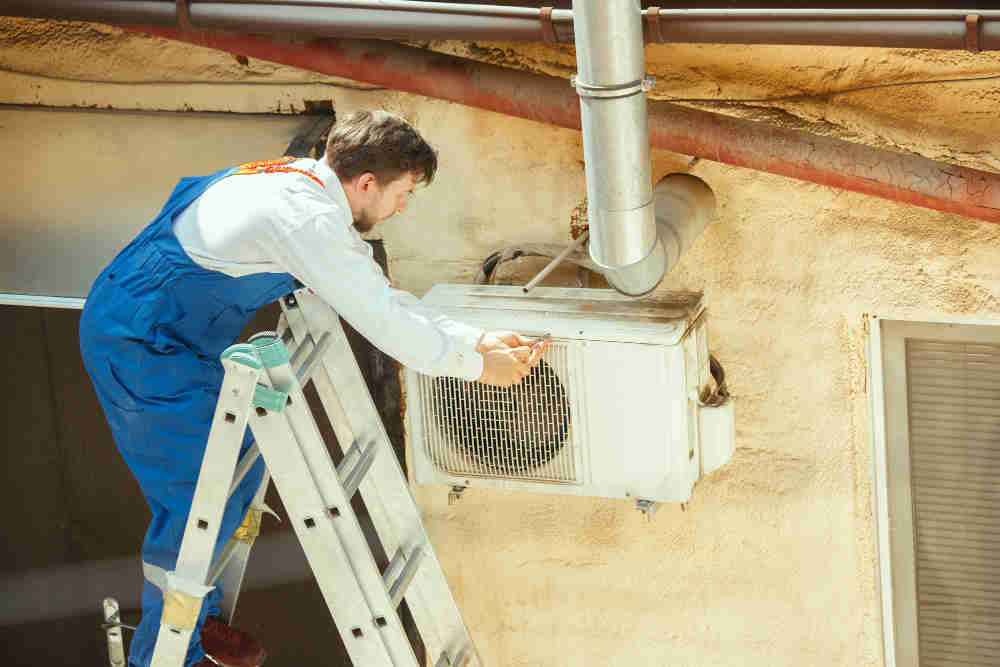Choosing components for your home’s heating, ventilation, and air conditioning (HVAC) system is critical for its overall performance and efficiency. Each component, from gas valves for furnace to air filters and thermostats, uniquely ensures your HVAC system functions optimally. This article will look into the essential considerations for choosing the right components for your HVAC system, highlighting the importance of gas valves for the furnace.
Understanding the HVAC System
It’s crucial to grasp how the entire system functions to make informed decisions about HVAC components. HVAC systems create a comfortable indoor environment by regulating temperature, humidity, and air quality. They consist of several interdependent components that work together harmoniously.
These components include a heating source (such as a furnace or heat pump), a cooling source (an air conditioner or heat pump), a blower or fan to circulate air, ductwork to distribute conditioned air throughout the home, a thermostat to control temperature settings, and additional elements like air filters, humidifiers, and dehumidifiers to enhance indoor air quality.
Understanding the holistic operation of your HVAC system lets you make informed decisions when selecting specific components to optimize its performance.
Gas Valves for the Furnace: Ensuring Efficient Heating
Gas valves for the furnace are integral to the heating process. These valves regulate the flow of natural gas to the furnace’s burner, controlling the heat output. A well-functioning gas valve is crucial for efficient heating and safety.
When choosing a gas valve for your furnace, consider factors like compatibility with your furnace model, safety features (such as shutoff mechanisms in case of malfunctions), and energy efficiency. The type of gas valve matters, with options like standing pilot, intermittent pilot, and electronic ignition valves offering specific advantages.
Selecting the right gas valve ensures that your furnace operates efficiently, providing consistent and cost-effective heating for your home.
Air Filters: Maintaining Clean Indoor Air
Air filters are the first line of defense against airborne contaminants in your HVAC system. They capture dust, allergens, pollen, and other particles, preventing them from circulating throughout your home. Selecting the appropriate air filter is vital for maintaining clean indoor air quality and protecting your HVAC system.
Various air filters are available, ranging from basic fiberglass filters to high-efficiency HEPA (High-Efficiency Particulate Air) filters. Your choice should depend on indoor air quality needs and the required filtration. It’s crucial to follow a regular maintenance schedule, either replacing or cleaning your air filter, to prevent clogs that can reduce airflow and strain your HVAC system.
Thermostats: Precision Temperature Control
Thermostats serve as the command center for your HVAC system, allowing you to set and adjust the desired indoor temperature. Modern thermostats have many features that can enhance your control and energy efficiency.
When selecting a thermostat, consider compatibility with your HVAC system, ease of use, and the level of control you desire. Programmable thermostats enable you to create heating and cooling schedules that comply with your daily routines, reducing energy consumption when you’re away or asleep. Smart thermostats take this further, allowing remote control via smartphone apps and learning your preferences to optimize energy usage.
Choosing the right thermostat empowers you to achieve precise temperature control and maximize energy efficiency in your home.
Ductwork: Efficient Air Distribution
Ductwork is the circulatory system of your HVAC system, which distributes conditioned air throughout your home. Adequately designed and sealed ducts ensure that heated or cooled air reaches all areas efficiently.
Factors like material, insulation, and size come into play when considering duct components. Well-insulated ducts help prevent heat loss or gain during air distribution, improving overall energy efficiency. Regular maintenance, including duct cleaning and sealing, is crucial to preserving the efficiency of your HVAC system. Leaky or uninsulated ducts can lead to energy waste and inconsistent heating or cooling in different areas of your home.
Condensers and Evaporators: Cooling Efficiency
For homes equipped with air conditioning, condensers and evaporators are key components of the cooling process. These components work together to dissipate heat from indoor spaces and release it outside while simultaneously cooling and dehumidifying the indoor air.
Choosing energy-efficient condensers and evaporators can significantly impact your cooling system’s performance and energy consumption. These components’ Seasonal Energy Efficiency Ratio (SEER) rating is an essential consideration. Higher SEER ratings indicate greater energy efficiency, translating to reduced energy bills and reduced environmental impact.
By selecting the right condensers and evaporators, you can enjoy efficient and cost-effective cooling during hot seasons while maintaining a comfortable indoor environment.
Conclusion
In conclusion, understanding the intricate web of components within your HVAC system is essential for making informed decisions when choosing the right components. Gas valves for the furnace regulate heating efficiency, air filters maintain clean indoor air quality, and thermostats offer precise temperature control.
Ductwork ensures efficient air distribution, while well-maintained ducts prevent energy loss. Condensers and evaporators are vital in cooling efficiency, with higher SEER ratings indicating enhanced performance.
Each component within the HVAC system serves a unique purpose, and selecting the appropriate ones for your needs is key to optimizing performance, maximizing energy efficiency, and maintaining a comfortable and healthy indoor environment. Gas valves for the furnace and other components contribute to your HVAC system’s overall efficiency and functionality, making informed choices crucial for your comfort and your wallet.






